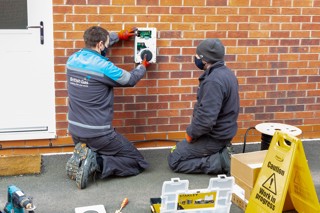Winter conditions can reduce the range of a battery electric vehicle by up to 40%, participants in the Optimise Prime EV trial have reported.
The Ofgem-funded programme is the world’s largest commercial EV project and aims to discover how the UK’s electricity infrastructure will cope with the mass adoption of EVs, as well as how businesses can accelerate their transition.
It features three fleet partners – Royal Mail, Centrica and Uber – who each have different operating modes, as well as Hitachi and electricity distribution networks UK Power Network and Scottish and Southern Electricity networks.
James Rooney, fleet engineer at Centrica, said: “In 2014, we took on some Nissan eNV200s and they were a really good van in the summer, not so good in the winter.
““Bearing in mind this is old tech, we could get 70 miles out of them in the summer but in winter that could be down to 40 miles with a mix of what the cold does to the battery in terms of potency as well as the driver using the heaters.
“It’s less of a problem now with battery preconditioning and liquid-cooled batteries, but we certainly see a seasonal disparity.”
Royal Mail has had a similar experience. “We introduced our first 100 EVs throughout 2018/19 so we’ve had them for a couple of winters now,” says Anna Pearson, fleet innovation and environment manager at Royal Mail.
“The colder and darker conditions means we have to use the heaters and lights more, and we have seen a drop in range.
“We’ve probably seen a drop of about 25% to 30%, definitely. That obviously depends on how the vehicle is being driven as well.”
For more on Optimise Prime, the aims and findings of the ongoing project and, look out for the feature in the February issue of Fleet News, available in print or digital edition from Thursday, February 25.























Login to comment
Comments
No comments have been made yet.